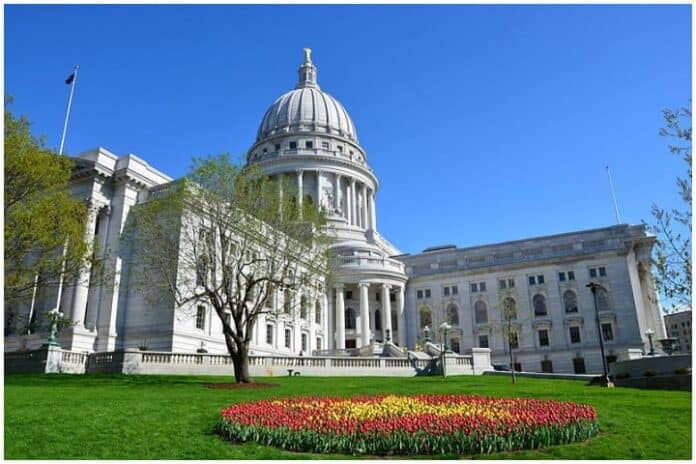The next four years at the Wisconsin Capitol are likely to be the same as the last four years.
Governor Evers took the governor’s mansion. The Republicans held on to the legislature but fell just short of a supermajority.
That means the same kind of split government that Wisconsin has seen for the past four years.
“Republicans won’t have a supermajority in the state Assembly. Gov. Evers’ veto pen is secure,” Wisconsin Democratic Party boss Ben Wikler said on Twitter after Tuesday’s election.
Republicans needed to flip one seat in the State Senate to get to a supermajority, they did that by winning Democratic Senate Minority Leader Janet Bewley’s seat in far northwestern Wisconsin. She didn’t run again.
Republicans needed to take five seats in the Assembly in order to get a supermajority there. They grabbed three seats.
The top Democrat in the Assembly, Rep. Greta Neubauer, said stopping a Republican supermajority is something to celebrate.
“With the governor’s veto power intact, Republicans in the legislature will be prevented from turning Wisconsin into ground zero for dismantling our democracy,” Neubauer said.
Gov. Evers made his veto power an issue in the campaign for governor, bragging that he vetoed more pieces of legislation than any other governor in Wisconsin history.
He scuttled nearly 150 different pieces of legislation passed by Republican lawmakers.
But Evers’ veto power will not stop Republicans from controlling the state budget.
Republicans ignored the governor’s first two budget proposals, both of which included billion-dollar-plus tax increases and several billion dollars more in spending.
The legislature will get to work on a new state budget when lawmakers return in January.
While Gov. Evers won comfortably over Republican Tim Michels, and Attorney General Josh Kaul narrowly won over Republican Eric Toney, the state’s race for Secretary of State remained too close to call Wednesday. Early vote totals also suggest that Republican John Lieber won the little-noticed race for Wisconsin Treasurer.













![WATCH: Elon Musk Town Hall Rally in Green Bay [FULL Video]](https://www.wisconsinrightnow.com/wp-content/uploads/2022/04/Elon_Musk_3018710552-356x220.jpg)



![The Wisconsin DOJ’s ‘Unlawful’ Lawman [WRN Voices] josh kaul](https://www.wisconsinrightnow.com/wp-content/uploads/2025/03/MixCollage-29-Mar-2025-08-48-PM-2468-356x220.jpg)
















